How flue gas heat recovery solves Carbon Capture issues
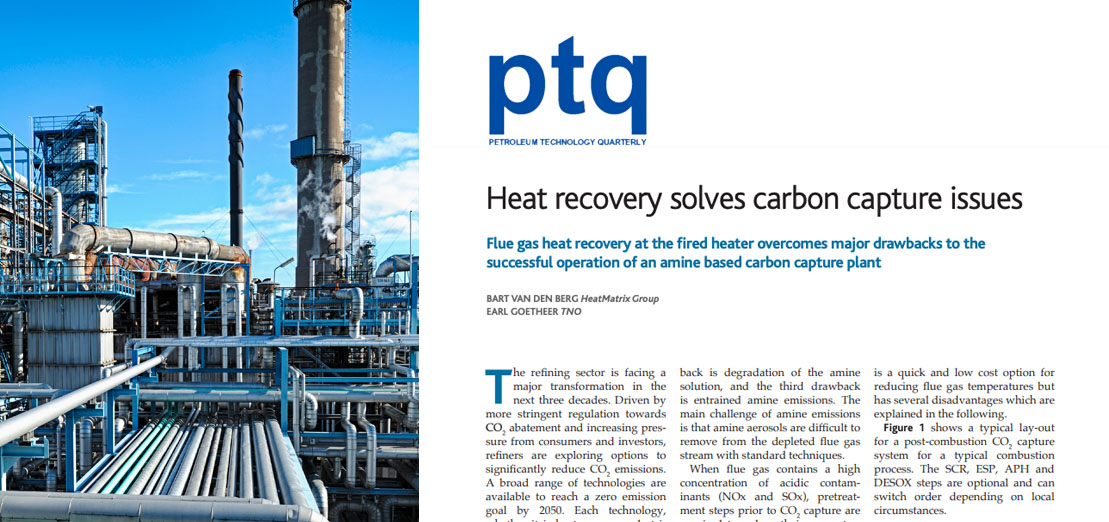
Reliable waste heat recovery from corrosive flue gas
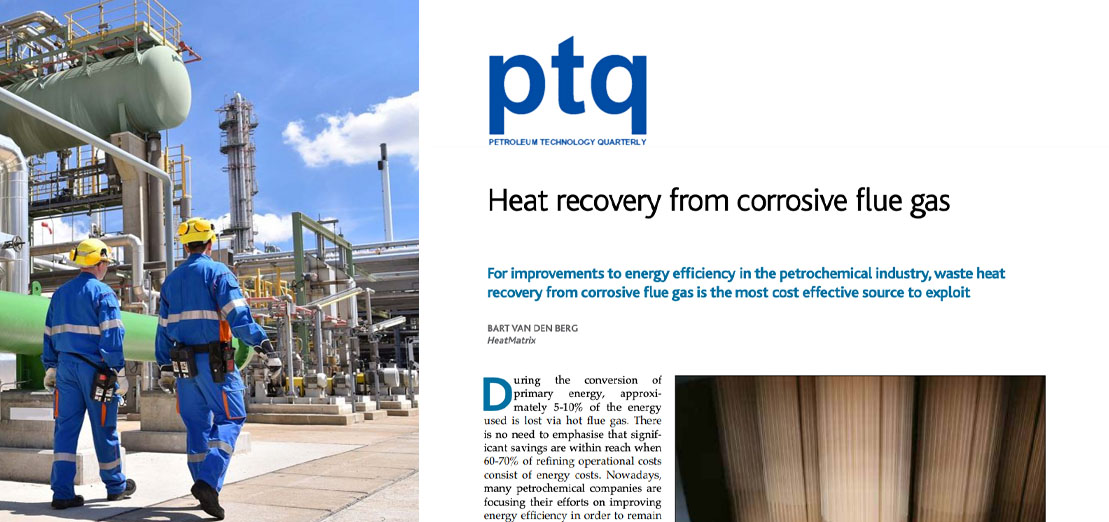
Low corrosion rates despite cooling through Acid Dew Point
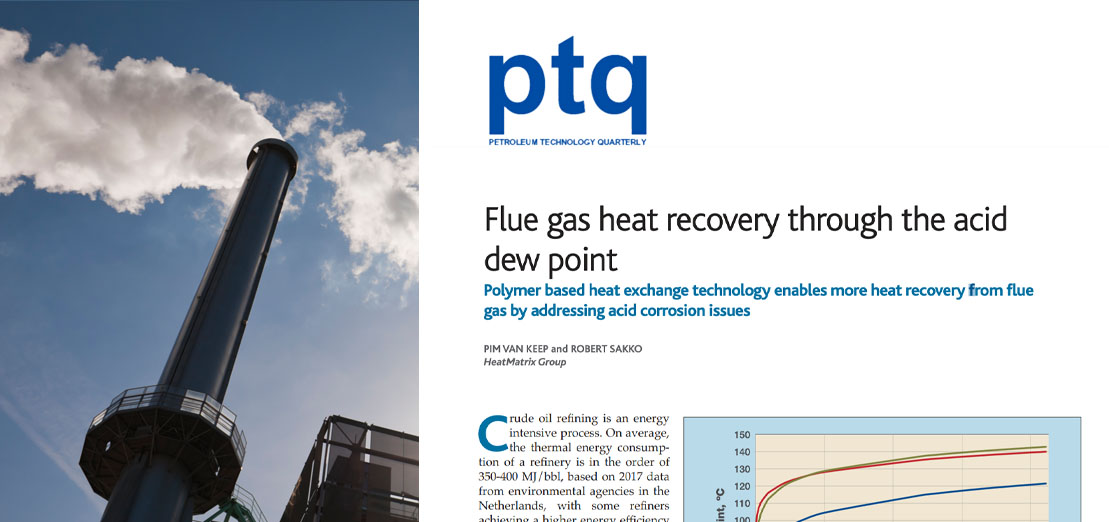
How-to calculate the Acid Dew Point (ADP) of flue gas
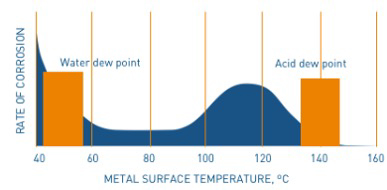
When flue gas reaches a temperature below the acid dew point, acidic elements will condense. This could cause heat exchanger corrosion. Knowing the acid dew point of your flue gas enables you to select the appropriate materials for your heat recovery installation. ARTICLE 4 MINUTE READ What is the Acid Dew Point? The acid dew […]
Managing fouling in Polymer Economisers
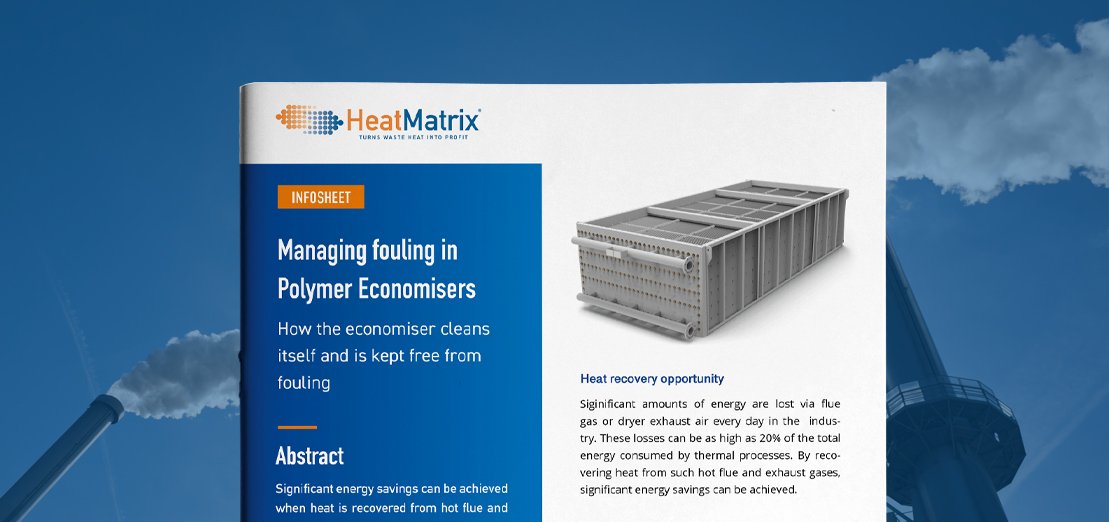
Managing fouling in Polymer Economisers How the economiser cleans itself and is kept free from fouling Significant energy savings can be achieved when heat is recovered from hot flue and exhaust gases. When these hot flue and exhaust gases are fouling, management of this fouling is important in order to avoid heat exchanger blocking. The […]
5,300 kW Energy Recovery from an Incinerator
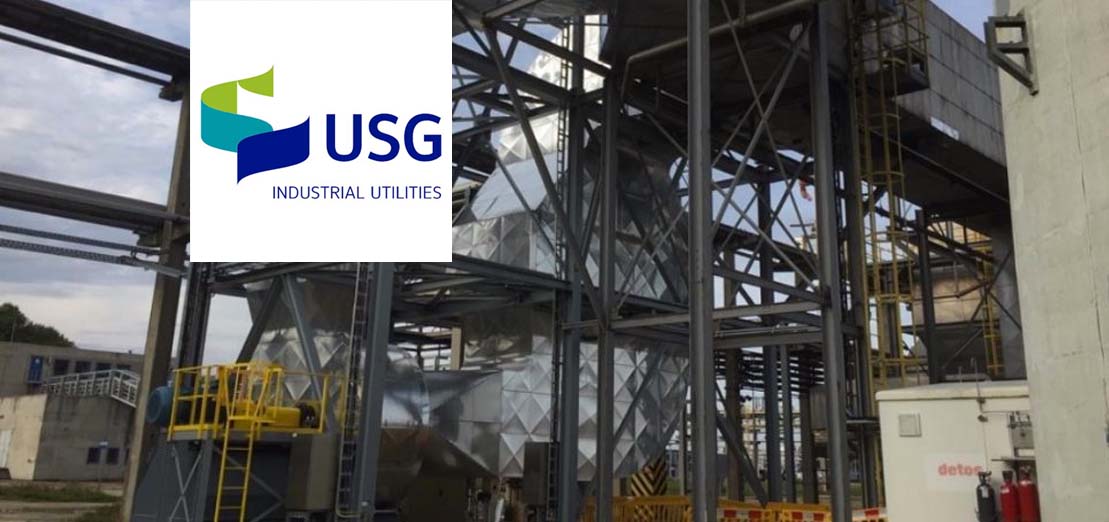
Heat recovery from CHP for a heating grid
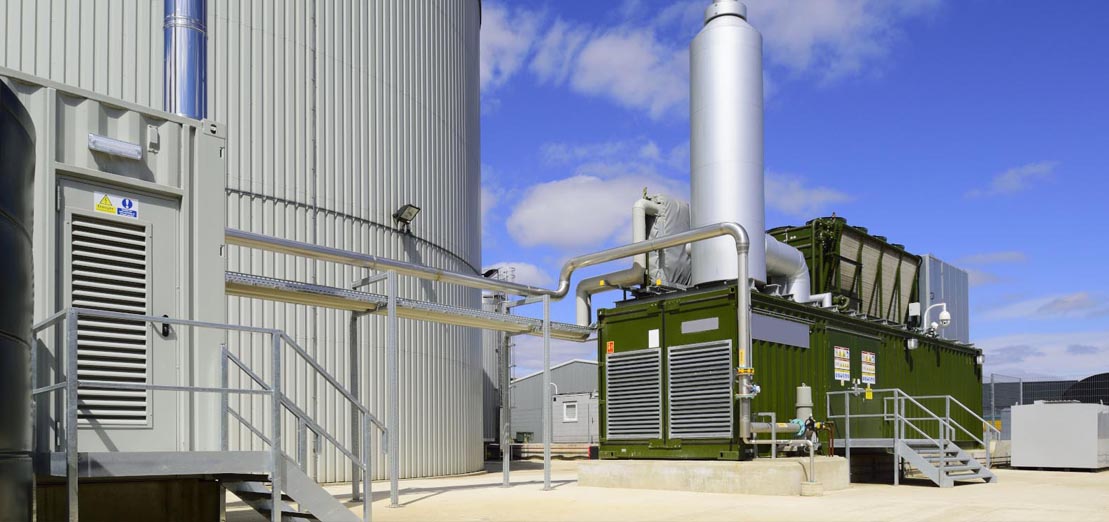
Technical assessment of heat recovery on a Thermal Process
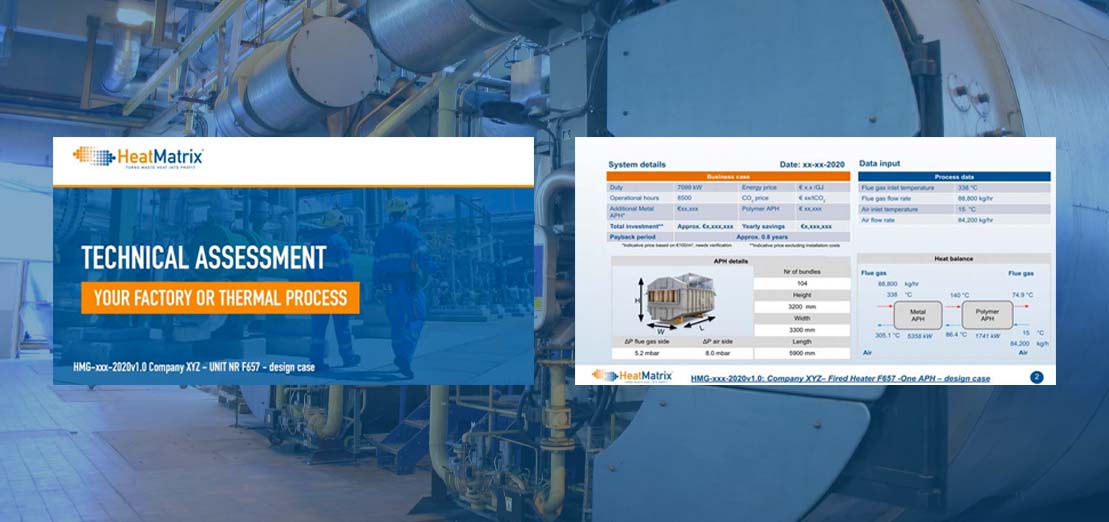
Corrosion effects when cooling through the Acid Dew Point
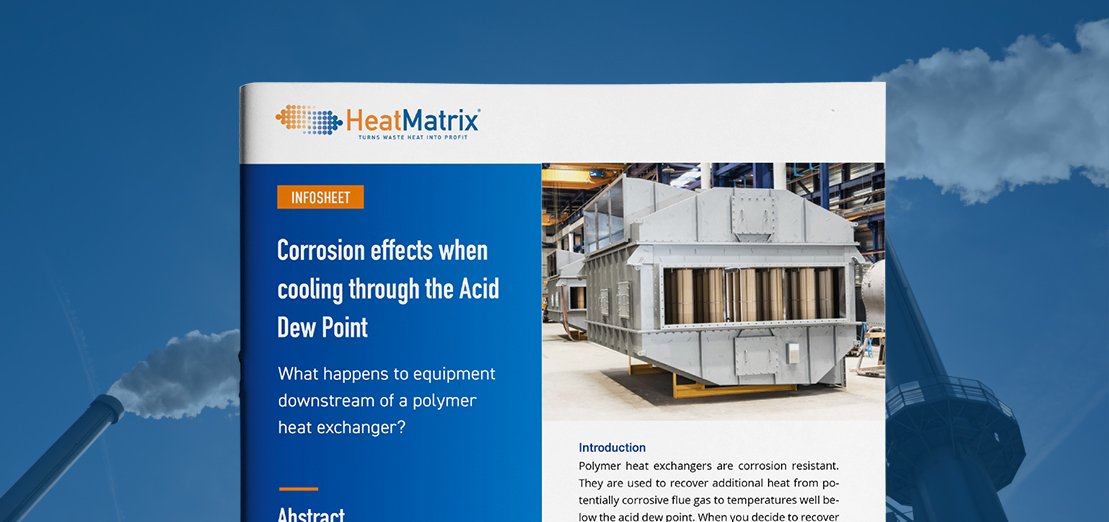
Corrosion effects when cooling through the Acid Dew Point What happens to equipment downstream of a polymer heat exchanger? The HeatMatrix polymer heat exchanger technology allows operators to recover heat to temperatures below the acid dew point. In the polymer heat exchanger, sulphuric acid condenses out. This results in a lower acid dew point of […]
Flue gas heat recovery systems for Oil Refineries
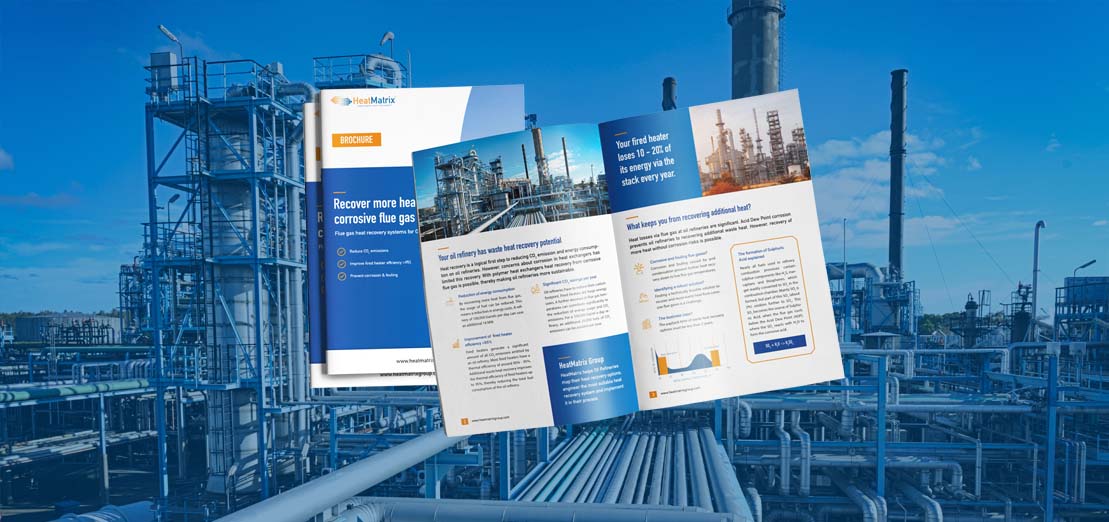
Recover more heat from corrosive flue gas in Oil Refenieries Heat recovery is a logical first step to reduce CO2 emission and energy consumption in oil refineries. Concerns about corrosion limit this heat recovery. However, polymer heat exchangers make it possible to recover additional heat from corrosive flue gas. This makes oil refineries more sustainable. […]
